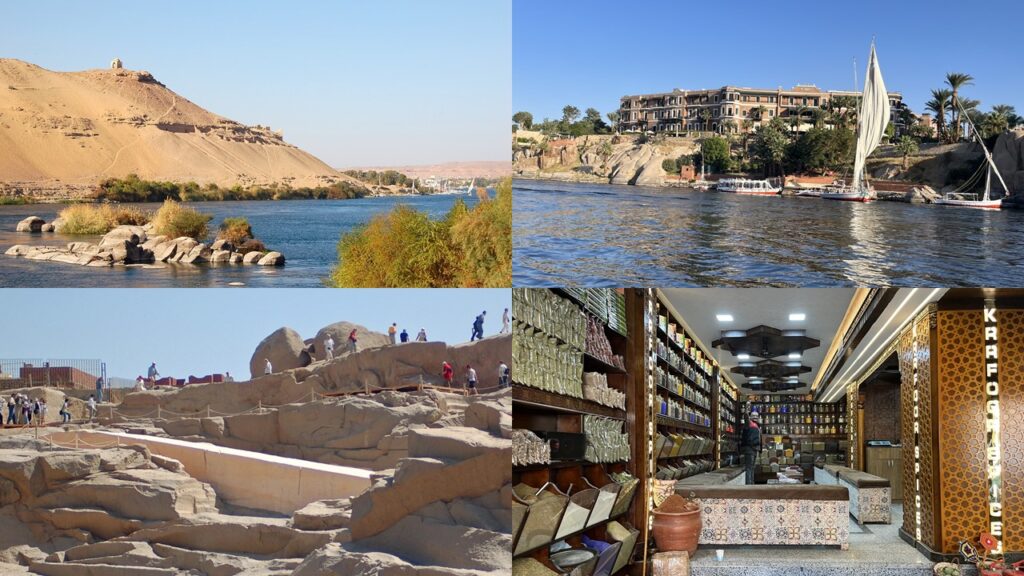
Clockwise from upper left: tomb of Aga Khan III, Old Cataract Hotel, spice market, unfinished obelisk (Photos by Don Knebel)
Today, in our continuing tour of Egypt, we visit Aswan, once famous for its granite but now famous for its many attractions.
Situated at the Nile River’s first cataract, one of six granite outcroppings in the river, Aswan (then called “Swenett”) marked ancient Egypt’s boundary with Nubia. Swenett was the site of granite quarries, where artisans carved obelisks for temples near Luxor. One important site in Aswan is the unfinished obelisk, abandoned when carvers discovered a crack. It is still not entirely clear how workers extracted the enormous obelisks from their quarries, transported them more than a hundred miles downriver and erected them at the temples.
Aswan is the site of the Aswan High Dam, erected between 1960 and 1970 to control the flooding of the Nile. The dam, more than two miles long and 364 feet high, created Lake Nasser, requiring the piece-by-piece removal of the Philae Island temple complex to higher ground. Feluccas, graceful traditional boats propelled by both oars and sails, take visitors to the temple and other sites along the river, including colorful Nubian villages. Aswan is famous for its spice markets, which sell Iranian saffron at bargain prices. Many visitors come to Aswan on Nile River boats shuttling between Luxor and Aswan. Guests can stay at the Old Cataract Hotel, where Agatha Christie wrote part of “Death on the Nile,” sipping afternoon tea on a terrace overlooking the Nile. At night, visitors can engage horse-drawn carriages for trips around the city.
Aswan was the favorite city of Aga Khan III, born in what is now Pakistan and served as the president of the League of Nations in 1937. He is entombed in a mausoleum atop a hill overlooking the Nile, providing a magnificent view of Aswan and the river. Many visitors to Egypt never make it to Aswan. Don’t make that mistake.
Comments are closed.